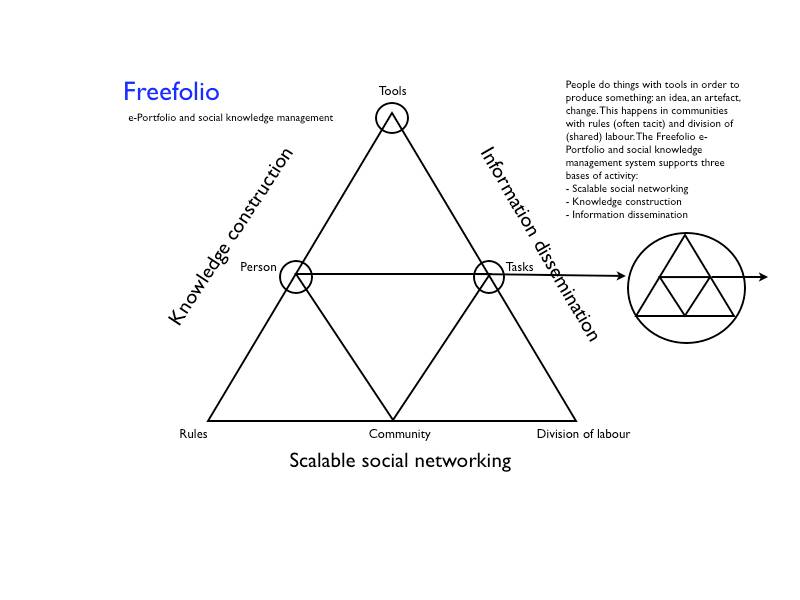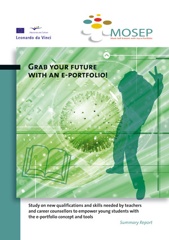Sounds of the Bazaar (edition 15)
Another great edition of Sounds of the Bazaar – brought to you in conjunction with online-Educa Berlin.
First up is my introduction to the show, where I tell you about the fabulous up coming Bazaar conference.
This is followed by Graham Attwell’s periodic rant. This months rant is about the tyranny of assessment and I look at alternatives based on Assessment for learning as opposed to the assessment of learning. If you enjoy this and would like to hear more you can watch my video on E-learning 2.0 and Quality.
Our interview is with Jay Cross who talks about informal learning. Jay’s web site describes him as a “champion of informal learning, web 2.0, and systems thinking. He puts breakthrough business results ahead of business as usual. His calling is to change the world by helping people improve their performance on the job and satisfaction in life.” In the interview he talks about what he means by informal learning, the difference between training and learning, what organisations can do to promote informal learning and how education systems might change in the future.
Ulf Daniel Ehlers tells us about his idea for Science without Borders. Ulf is an Assistant Professor of Business Information Systems, at the University of Duisberg-Essen in Germany. He is Coordinator of the European Foundation for Quality in e-Learning and coordinator of the European Quality Observatory.
One of his main research interests is education for sustainable development and in this interview he talks about how we can facilitate researchers from different countries working together
Blog site features Ismael Pena Lopez’s brilliant ICTlogy blog. Talking about his blog he says:
- this site serves my purposes of keeping all my knowledge under control
- having all content open, it helps interesting people coming by
- having all content open makes me findable not by myself, by thanks to the content gathered around me
- interesting people leave their tracks behind them, tracks I can explore and find them, their institutions, their resources
- the more you know, and share it, the more these issues repeat along time… and the more you can reach new people to learn more and more.
Claire Belisle talks about her research on information and digital media. Claire Bélisle est ingénieure de recherche CNRS en sciences humaines et sociales. Elle a un doctorat en psychologie cognitive, et un diplôme en formation en ligne. Ces centres d’intérêt en recherche sont la navigation et les méta-compétences des formateurs, enseignants et chercheurs dans l’intégration des technologies de l’information et de la communication en éducation et en recherche. Elle pilote actuellement des travaux sur le livre électronique et sur les corpus numériques, en se focalisant sur la navigation dans les hypermédias, le travail collaboratif et la lecture numérique.
But don’t worry if your French isn’t too good – the interview is in English!
Finally I talk us out of this issue. Phew – that is a lot. I know the full edition is long. But the music is just brilliant. As ever many thanks to Dirk Stieglitz who produced this issue.
Podcast: Play in new window | Download
Subscribe: RSS
Podcast (podcast1): Play in new window | Download
Subscribe: RSS
Podcast (podcast2): Play in new window | Download
Subscribe: RSS
Podcast (podcast3): Play in new window | Download
Subscribe: RSS
Podcast (podcast4): Play in new window | Download
Subscribe: RSS
Podcast (podcast5): Play in new window | Download
Subscribe: RSS
Podcast (podcast6): Play in new window | Download
Subscribe: RSS
Podcast (podcast7): Play in new window | Download
Subscribe: RSS

 As regular readers of this blog will know, I have spent a lot of time over the last year working on e-Portfolios and Personal Learning Environments. And I get bored just talking about things, I like to do them.
As regular readers of this blog will know, I have spent a lot of time over the last year working on e-Portfolios and Personal Learning Environments. And I get bored just talking about things, I like to do them.

